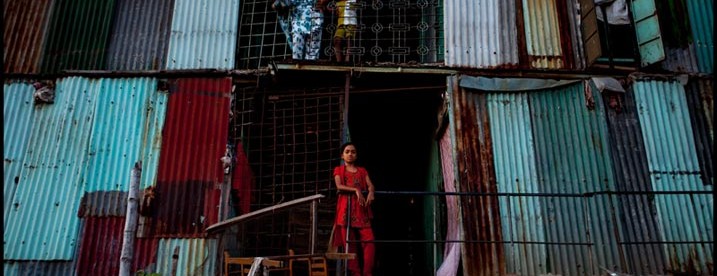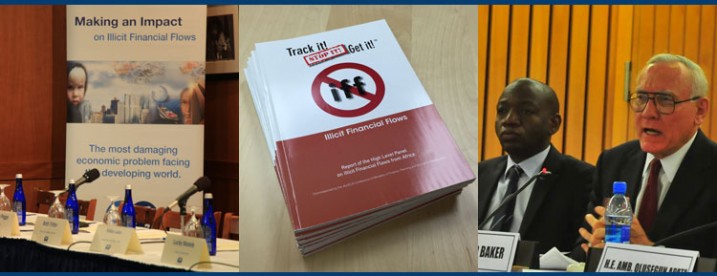Governments Commit to “Substantially Reduce Illicit Financial Flows by 2030”
Development Accord Seeks to Curb an Estimated $1 Trillion in Annual Outflows
ADDIS ABABA, Ethiopia – Global Financial Integrity (GFI), the Africa Progress Panel (APP) and Jubilee USA applauded the global commitment made today at the Third Financing for Development Conference (FfD3) to reduce the massive flow of illicit funds from developing country economies. For the first time international consensus was reached on the importance of an issue that has been at the forefront of efforts by hundreds of research and development organizations for the last ten years. The negotiations concluded today and formal adoption of the document will take place on Thursday.
Initiative Funded by the Government of Norway
WASHINGTON, DC – Global Financial Integrity (GFI) is pleased to announce the launch of a new program that seeks to assist developing country governments with increasing domestic resource capture by curtailing trade misinvoicing, and continuing work to educate policy makers about the corrosive impact illicit financial flows have on developing economies.
GFI Spokespersons Available for Comment and Updates on Financing for Development (FfD), Sustainable Development Goals (SDGs), Illicit Financial Flows, Trade Misinvoicing
ADDIS ABABA, Ethiopia / WASHINGTON, DC – The third Financing for Development Conference (FfD) will take place in Addis Ababa, Ethiopia, July 13-16, and Global Financial Integrity will be on the ground advocating for specific, measurable and achievable targets to significantly reduce illicit financial flows.
This process marks a momentous opportunity to create a sustained path for helping developing countries address the nearly US$1 trillion that flows out of their economies illicitly each year. Of that amount approximately $730 billion is moved offshore through trade misinvoicing (i.e. trade fraud). The related tax loss, coupled with the potential investment resources that are lost, represent significant costs to governance and development efforts in poor countries.

World Leaders Urged to Target Illicit Flows, Trade Misinvoicing at Addis Summit
The outlook was promising. In the outrage over the unfolding FIFA corruption scandal, UK Prime Minister David Cameron vowed Saturday to put corruption on the agenda of this week’s G7 Summit in Germany.
By Tom Cardamone, June 4, 2015

Illicit Financial Flows Have a Devastating Impact on the Poorest Countries in the World
What do you do when “the big number,” used to estimate the global volume of illicit financial flows (IFFs), begins to lose its luster?
Over the past year or so, GFI has begun to hear—in various venues and by various people—the warning to audiences that they shouldn’t “focus on the big number.” A trillion dollars is a global number, these observers say, and can’t be used to assess the impact at the country level. Or, they contend, the trillion dollars in IFFs is from a cluster of emerging market countries and therefore is skewed to make it look as though all developing countries have huge problems when really only a few do. GFI decided to go back to the data to see if the criticisms were accurate.
As a result, this week we are publishing “Illicit Financial Flows and Development Indices: 2008–2012,” a study that looks at illicit flows from the poorest countries to determine the development impact in those places that do not appear on the top-10 list of IFF-source nations by gross volume. Rather than focus on the Chinas and Russias and Mexicos of the world, we examined IFFs in nations that appear, for example, on the Least Developed Countries list or the Highly Indebted Poor Countries list—82 countries in all were examined. What we found was simply alarming.

Illicit Financial Flows Have “Outsized Impact on Poorest Countries”
FfD Negotiators Urged to Target Illicit Financial Flows and Trade Misinvoicing
WASHINGTON, DC – Illicit financial flows (IFFs), stemming from crime, corruption, and tax evasion, have an outsized impact on the world’s poorest countries, according to a new study released today by Global Financial Integrity (GFI), a Washington, DC-based research and advisory organization. Titled “Illicit Financial Flows and Development Indices: 2008–2012,” the report also finds strong correlations between higher illicit outflows and higher levels of poverty and economic inequality.

This June 2015 study from Global Financial Integrity highlights the outsized impact that illicit financial flows have on the world’s poorest economies. The study looks at illicit outflows from some of the world’s poorest nations and compares those values to traditional development indicators—including GDP, trade, FDI, public spending on education and health, tax revenue, etc.
The report also produces several scatterplots in which illicit flows values for all developing and emerging market nations are compared to key trade and development indices, such as human development, inequality, and poverty.
By Tom Cardamone, April 23, 2015

A Quarterly Newsletter on the Work of Global Financial Integrity from January through mid-April 2015
Global Financial Integrity is pleased to present GFI Engages, a quarterly newsletter created to highlight events at GFI and in the world of illicit financial flows. We look forward to keeping you updated on our research, advocacy, high level engagement, and media presence.
The release of this quarter’s newsletter was delayed in order to include the high level roundtable GFI held on April 17. The following items represent just a fraction of what GFI has been up to since December, so make sure to check our website for frequent updates.
GFI’s High Level Roundtable: IFFs, FfD, and SDGs: Global Perspectives
Global Financial Integrity was pleased to host a high level roundtable on April 17 that focused on the relationship between illicit financial flows (IFFs), Financing for Development (FfD), and the Sustainable Development Goals (SDGs). Respected members of the public, private, academic, civil society, and multilateral sectors from around the world provided their perspectives on how to tackle IFFs, improve domestic resource mobilization, and strengthen the development of financial management.




